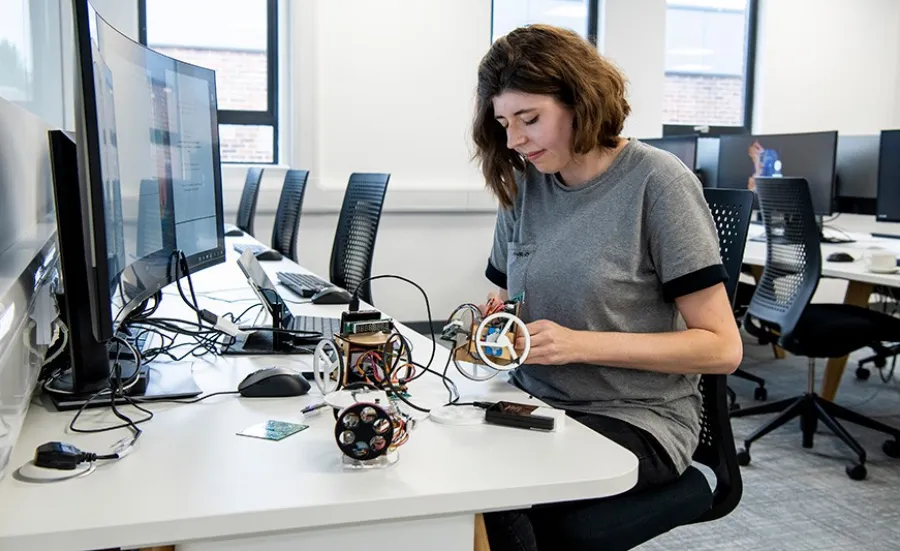Current research degree projects

Explore our current postgraduate research degree and PhD opportunities.

Explore our current postgraduate research degree and PhD opportunities.

This fully funded PhD investigates low‑power, high‑reliability chiplet physical‑layer design in advanced CMOS/FinFET technologies, including transceiver optimisation, reliability‑aware subsystems, interposer development, and electrical characterisation. The project includes full physical design and ASIC tapeout of chiplet prototypes, supported by industry‑linked soclabs.
This project will be designing and building topological photonic crystals on silicon chips, aiming to promote important applications such as optical imaging, sensing, and computing.
This project will be focusing on the research on non-Hermitian topological physics. Frontier research topics of exceptional point/surfaces, non-Hermitian skin effect, and catastrophe theory will be pursued.
This project will explore the use of photonic quasicrystals in building higher-dimensional topological phases. The research covers the mathematical framework development, photonic quasicrystals design, energy band calculation, sample fabrication, and experimental characterization.
How can networks of sensors work collectively in contested environments? This project develops distributed signal processing and filtering algorithms enabling autonomous systems to fuse information reliably under uncertainty and communication constraints. Working with DSTL, you will design principled, scalable methods for next-generation defence sensing and decision-support systems.
6G networks will be compute-native, evolving from packet-forwarding infrastructures into distributed in-network computing platforms. This project seeks to extend the limits of in-network computing by redefining what computation can be performed within the network data path, and how such capabilities can be coordinated across edge and core networks.
This project will design and validate an artificial oral environment for the physiological simulation and mechanistic study of enamel loss through erosion, abrasion and a synergistic combination of both.
This project aims to merge state-of-the-art acoustics, physics-based modelling, and cutting-edge artificial intelligence (AI) to advance hydrogen leak detection in complex environments. It drives innovation at the intersection of applied mathematics, physics, machine learning, and clean energy.
Transition metal dichalcogenides (TMDCs) are layered semiconductors with tunable bandgaps. They are emerging as key candidates for next-generation semiconductor technologies, including ultra-low power nano-transistors, neuromorphic computing architectures, photonic and quantum devices. This project, at the coordination chemistry and materials interface, involves preparation of new precursors for depositing TMDC thin films.